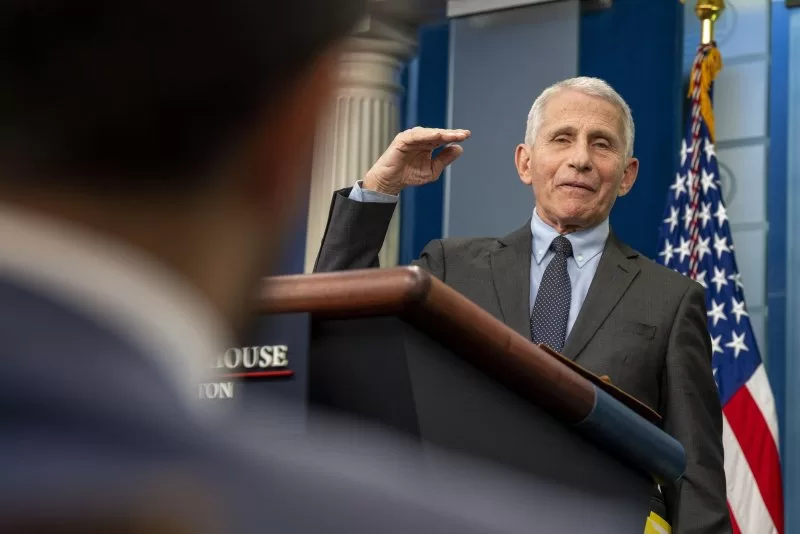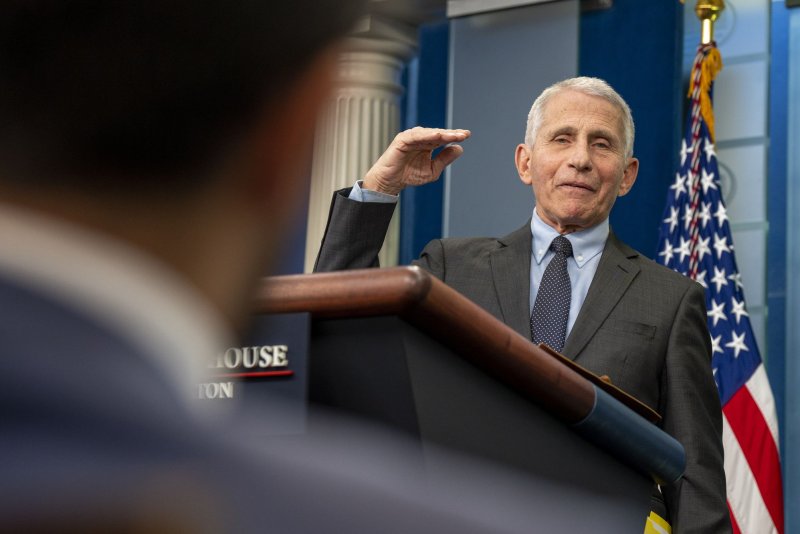Dr. Antony Fauci, Chief Medical Advisor to the President of the United States, and Dr. Ashish Jha, MD, MPH, coordinator, White House COVID-19 Response, speak at the daily briefing at the White House in Washington, DC, on Tuesday, November 22, 2022. Photo by Ken Cedeno/UPI |
License PhotoAug. 24 (UPI) — Dr. Anthony Fauci, the former long-time director of the National Institute of Allergy and Infectious Diseases, was hospitalized for one week with the West Nile virus likely from a mosquito bite and is recovering at home.
Fauci, who was part of the White House Coronavirus Task Force, is expected to recover fully, his spokesman told CNN and The Washington Post.
CBS News’ chief medical correspondent, Dr. Jonathan LaPook, said he spoke with Fauci on Saturday.
“Dr. Fauci was hospitalized about ten days ago after developing fever, chills, and severe fatigue,” LaPook posted on X. “Evaluation revealed that he had been infected with the West Nile virus, likely from a mosquito bite that he got in his backyard. He left the hospital three days ago and is recovering at home. The prognosis is for a full recovery.”
Fauci, 83, also was chief medical advisor to former President Donald Trump and then President Joe Biden. He retired on Dec. 31, 2022.
The virus is spread through the bite of infected mosquitoes. Symptoms include fever, headache, body aches, vomiting, diarrhea or rash, according to the Centers for Disease Control and Prevention.
About one in five people who are infected develop symptoms.
There is no vaccine or specific treatment for West Nile.
In 2024, 216 cases have been reported, according to the CDC. Since 1999, the number is 59,141 with 2,958 deaths.
West Nile virus was first isolated in a woman in Uganda in 1937, according to the World Health Organization. It was first reported in the United States in 2002, according to the National Library of Medicine.
Fauci joined the National Institutes of Health as a clinical associate in the National Institute of Allergy and Infectious Diseases’ Laboratory of Clinical Investigation. He became director of the NIAID in 1984.
During his tenure, he oversaw research and treatment of diseases such as HIV/AIDS, respiratory infections, diarrheal diseases, tuberculosis, and malaria, as well as emerging diseases, such as Ebola and Zika.

